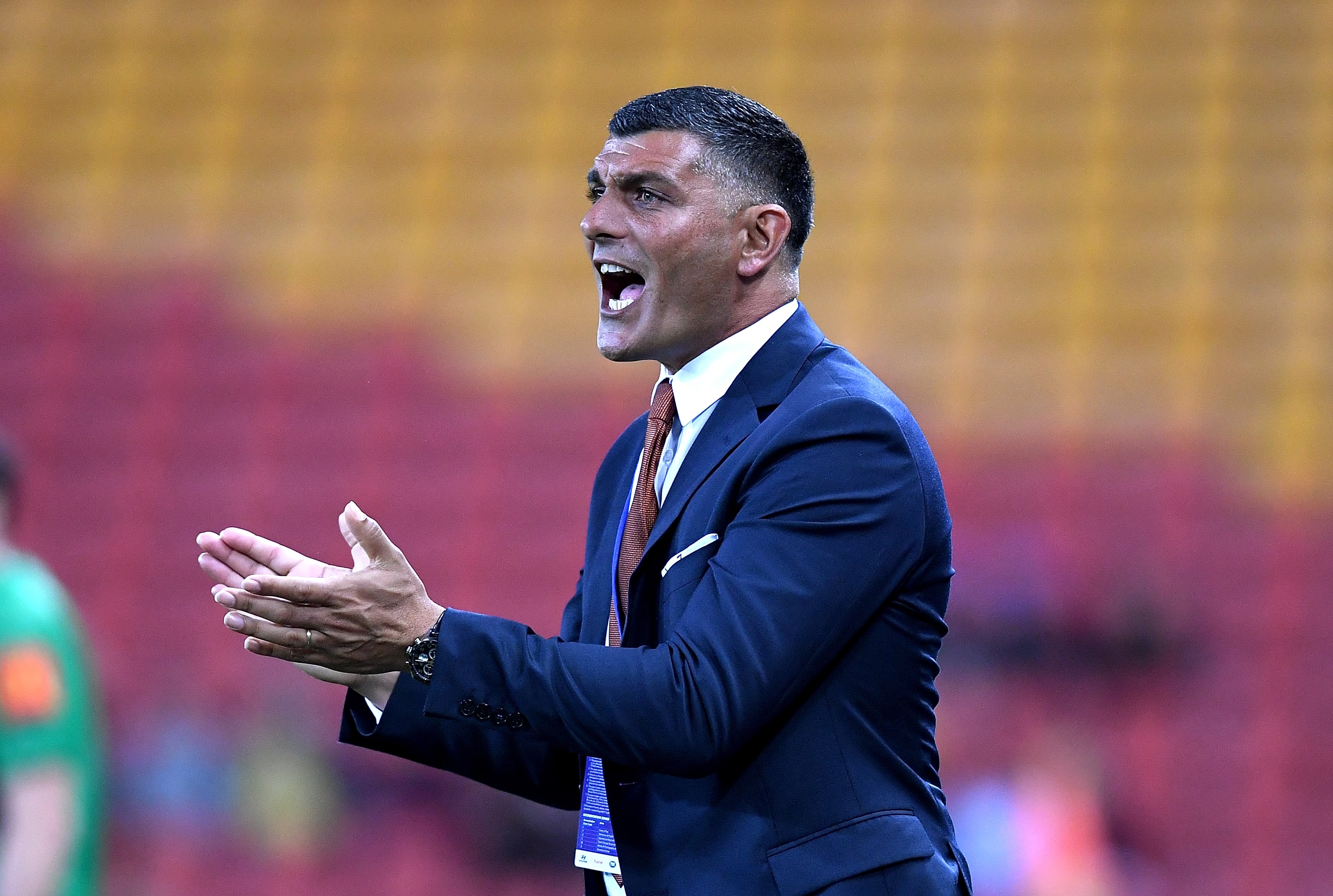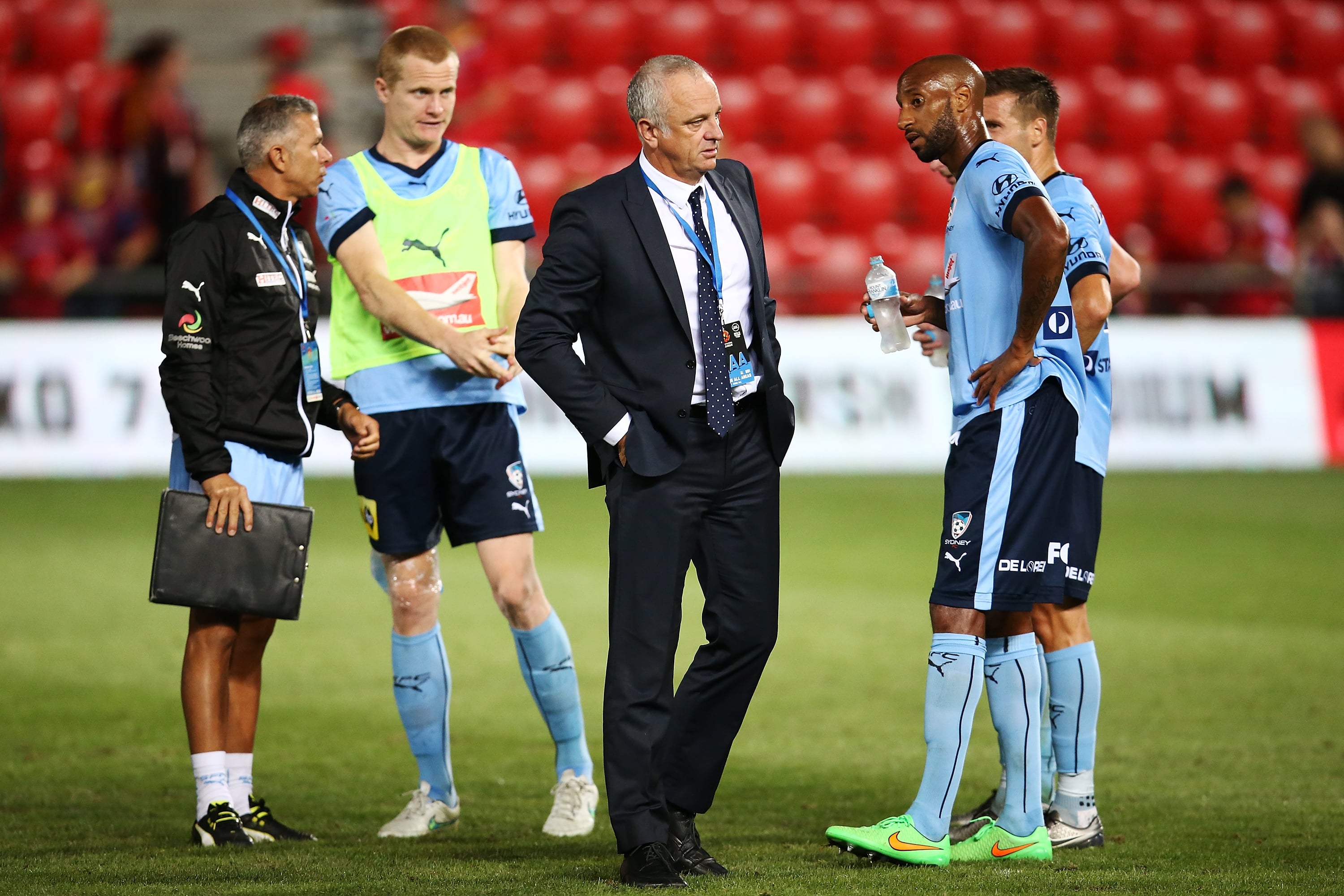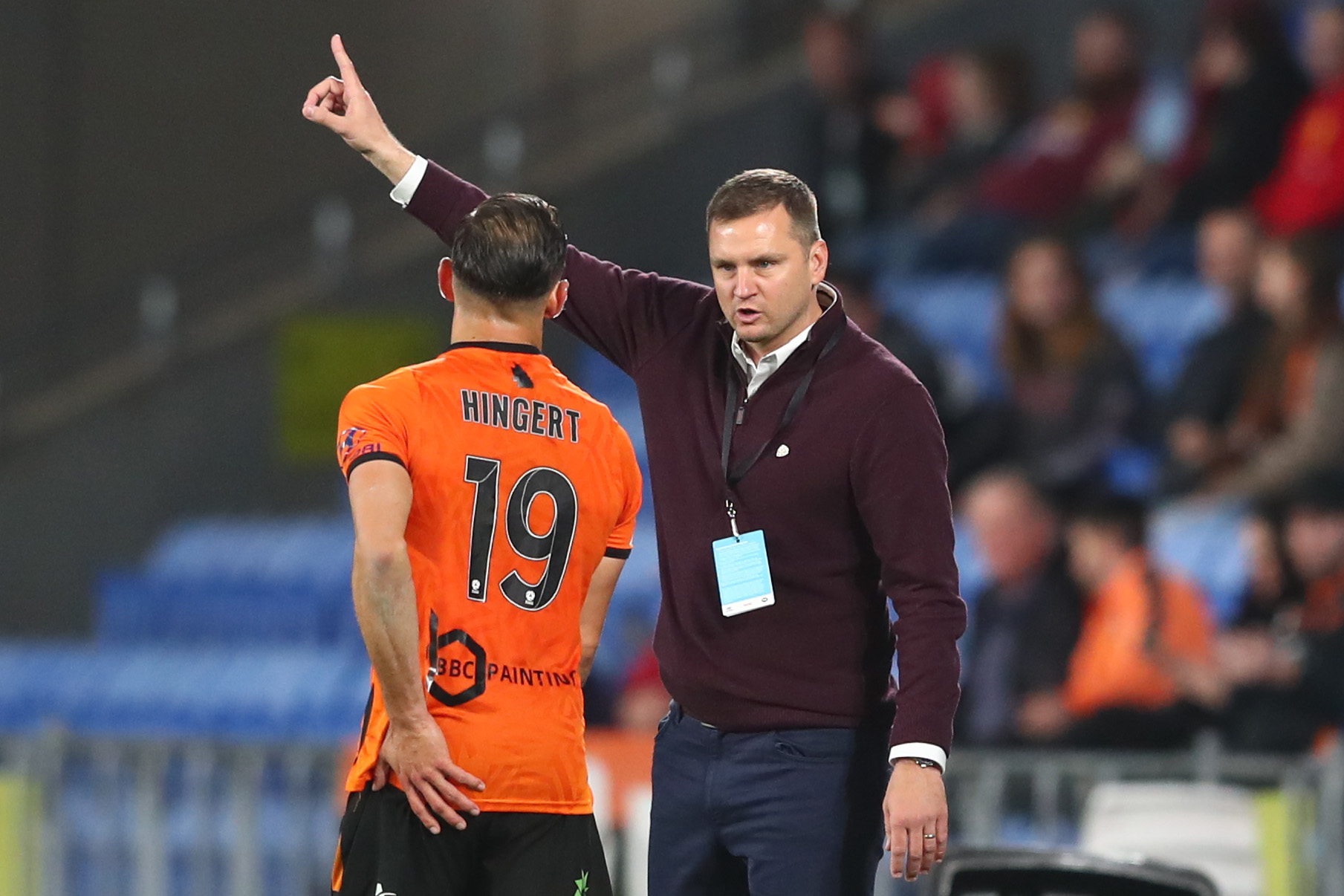IT’S a mild July morning at Lennoxtown, Celtic FC’s training ground north of Glasgow, and Ange Postecoglou cuts an animated figure as he details his playing philosophy to the squad he has just taken over.
Postecoglou’s only focus is the challenge he faces at Celtic, but almost 17,000km away, on the other side of the globe, another project he has been involved in – this time for more than a decade – is unfolding.
Ten years on from winning his first A-League title and third Australian domestic title, the trail blazed by Postecoglou as a proudly Australian coach has cleared the path for a second and even third wave of young Aussies aiming to follow in his footsteps.
Yesterday, John Aloisi returned to the A-League coaching ranks, charged with re-energising Western United – his third A-League coaching gig at the age of 45.

Last month Patrick Kisnorbo just won the A-League and coach of the year in his first season as a men’s head coach at Melbourne City. The runners up, Sydney FC, have recorded two titles and three grand finals in Steve Corica’s first three seasons at the helm.
Look down the table and it’s a similar story. In the season just finished, all six A-League finals teams were led by local managers. And while three of the A-League clubs have changed coaches, so far that has just opened the door for another young Australian in Arthur Papas at Newcastle, as well as Aloisi. Even the Mariners’ choice of Englishman Nick Montgomery to succeed Alen Stajcic elevates a popular figure who has been at the club for almost a decade and cut his coaching teeth at their academy.
It’s a far cry from the early days of the A-League, when club owners favoured foreign managers – few of whom enjoyed success. After 16 seasons, the A-League has seen 23 foreign managers. Between them, they have won the league just three times.
That’s the pro-Aussie drum Postecoglou has been beating for years, and now more and more qualified and hungry candidates are coming forward – and importantly are getting jobs and plaudits.
Maybe word is starting to spread. Kevin Muscat is reported to be a candidate to replace Postecoglou at Japanese giants Yokahama F Marinos, while Corica has also been linked with the J-League.
Despite his success, Corica says recognition of his abilities did not come easily.
“When I took over from Arnie (Socceroos manager, Graham Arnold), there was a lot of doubt in football circles as to whether I could do the job,” says Corica.
“Many think an overseas coach is always going to be better, but they’re not. Australian coaches are good, and we are starting to show we can get results.”

While Corica says he is “very happy” at Sydney, he does have ambitions to move overseas one day, and says that Postecoglou’s success coaching abroad is paving the way for Australian managers.
“It shows that if you do well in the A-League then you can get a move overseas,” he says.
Another local earning respect from the football public is Brisbane Roar manager, Warren Moon, who cut his teeth coaching in the Queensland National Premier League.
In just his first season in the A-League, Moon took unfancied Brisbane to a fourth-place finish – winning admirers along the way for his attacking brand of football and willingness to blood young local talent – and was a coach of the year nominee.
Like Corica, Moon says he felt a lot of pressure as a rookie A-League coach. “Australian coaches continue to be underrated, undervalued and underappreciated,” he says.
“There is definitely a perception out there that Australian coaches are inferior. I think it’s a perception that is wrong. There are good coaches in Australia – they just have to be given the opportunity.
“And I don’t think I’m talking out of turn when I say that unless you are an overseas coach or an ex-Socceroo, it’s a really hard club to break into.”
Moon says his drive for success is also motivated by a desire to show there are quality Australian coaches outside the A-League.
“One of the reasons I’m so keen to do well is to show that it’s possible to make the step up from the NPL to the A-League,” says Moon.
Moon says that, as a local, he has one big advantage over an imported manager: “I know a lot about the players in our state. I know the players coming through and what they are capable of doing. This gives me a head start when it comes to identifying local talent.” Hitherto unknown locals, like Alex Parsons, have not let him down.

Moon also cites Postecoglou’s success as a major motivator. “Ange’s success proves Australian coaches are as good as anyone in the world. What he’s doing is breaking down barriers. If he does well at one of the world’s biggest clubs, that will go a long way to dismiss the perception that Australian coaches aren’t good enough.”
Back in Australia, local coaches are also getting better organised to be influential voices in the game – as well as support each other.
In 2017, Football Coaches Australia was established to act on behalf of coaches across the country. Chaired by former Central Coast Mariners manager, Phil Moss, it provides a support network in times of crisis.
“We were formed with a few key pillars,” Moss says. “One of them is to give coaches a collective voice. The other is to really fight for standardised working conditions. That’s standardised contracts, and standardised grievance procedures when things go south – which coaches haven’t had before in this country.”
Moss knows how fickle the life of a coach can be. After an extremely successful first season at the Mariners, he was sacked the following year after a disagreement with the club’s owner.
“If you’re an A-League coach and you fall out of a job there aren’t a whole lot of jobs to fall into quickly,” says Moss. “I never want another coach to just have their mobile phone, their family and a lawyer. The FCA is a huge step forward for professional coaches.”
As for the broader coaching landscape, Moss is excited about the opportunities that are finally opening up for Australian managers.
“I have no doubt that Ange will make a success of his move to Celtic and that will open the door big time for Aussie managers,” says Moss. “It’s a fantastic time to be an Australian football manager.”




